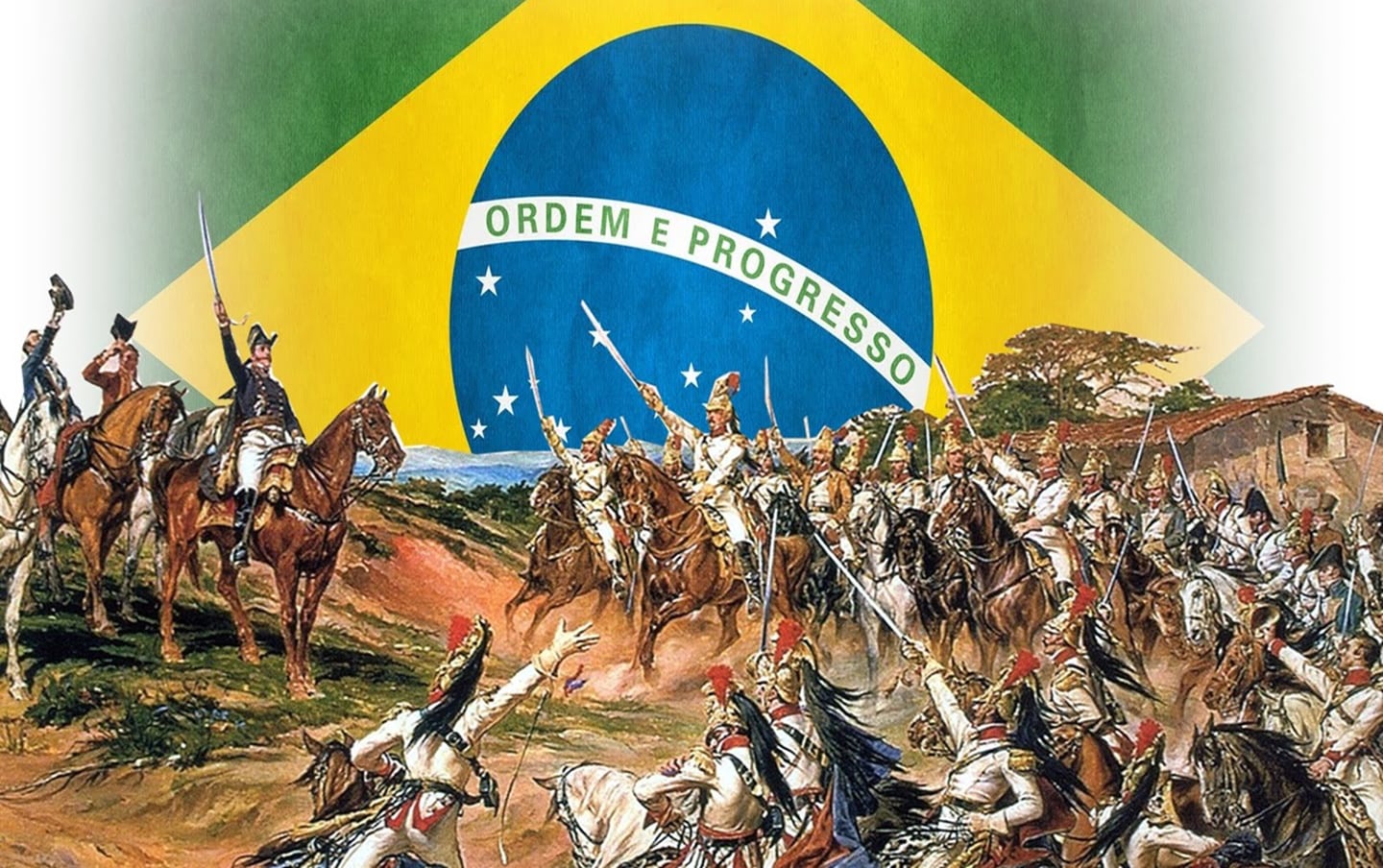On September 7th, 2023, Brazil celebrates its 201st birthday. The date marks Brazil’s Declaration of Independence from the United Kingdom of Portugal, Brazil and the Algarves on 7 September 1822.
Brazil’s history is a complex tale of politics and power. Before the Europeans arrived, Brazil was populated with Stone-Age tribes. Not much is known about these settlements as there isn’t a lot of written evidence about their lifestyle. The Portuguese landed in 1500 and Brazil was claimed by Pedro Álvares Cabral as a colony of Portugal. In 1532, São Vicente was established as the first permanent Portuguese settlement and, in 1549, Salvador was declared as the first capital of Brazil. It became a major port for sugarcane and slaves. Slaves were brought in from Africa to do labor work and, through battles and wars, Brazil was able to expand. The Portuguese took over Rio de Janeiro by defeating the French and captured several Dutch and British extensions.
Napoleon was attempting to conquer Europe during the early 1800s. In his absence, French troops invaded Lisbon. Prince Regent John VI set up the Portuguese Royal Court in Rio de Janeiro to avoid being disposed of.
 From 1808, the Portuguese king ruled his vast empire from Rio de Janeiro. After the Independence War ended, Brazil declared its independence and ceased to be a Portuguese colony in 1822, becoming the Empire of Brazil. Until 1831, Pedro I ruled, giving up his throne to his five-year-old son, Pedro II. Years of rebellion followed this. After a military coup in 1889, the Brazilian Republic was established, and Pedro II was expelled. The territory was renamed the Republic of the United States of Brazil and was renamed again to the Federative Republic of Brazil in 1967.
From 1808, the Portuguese king ruled his vast empire from Rio de Janeiro. After the Independence War ended, Brazil declared its independence and ceased to be a Portuguese colony in 1822, becoming the Empire of Brazil. Until 1831, Pedro I ruled, giving up his throne to his five-year-old son, Pedro II. Years of rebellion followed this. After a military coup in 1889, the Brazilian Republic was established, and Pedro II was expelled. The territory was renamed the Republic of the United States of Brazil and was renamed again to the Federative Republic of Brazil in 1967.
Traditions of the day
Independence Day celebrations are held on a vast level across Brazil. The day is marked with military parades and patriotic performances during the day and fireworks at night in major cities. The national celebration is hosted at the Ministries Esplanade with the president of Brazil present and spearheading the civil military parade.
Why Brazil Independence Day is important
It marks a day of liberation
From the 16th century, Brazilians chafed under Portuguese dominance. As part of a monarchy run by King Dom João VI, Brazil was just one more colony ripe for exploitation. By the 1820s, colonists were ready to throw off their Portuguese shackles. Today’s Brazilians remember the long fight for freedom with endless partying and celebrations during Independence Day.
It shows off Brazilian pride in diversity
It’s possible to see every color of the rainbow reflected in Brazilian families. Brazil’s past shows up in the dark skin of the ancestors of slaves, the fair skin of European descendants and the red and brown coloring of those with an indigenous Indian heritage. On Brazil Independence Day, Brazilians of every hue and background come out to celebrate their love of freedom. It’s also a day to acknowledge Brazil’s diversity as a unique, cultural treasure.
Samba the day away
Brazilians love to party and Independence Day is just another excuse for fun-loving folks to come out and play. Strut your stuff on the beach or spend an evening dancing a sexy samba. And the day isn’t just limited to those who live in Brazil.
5 rich facts about Brazil
• Brazilian settlement is really old
Recently discovered evidence suggests that human settlement in Brazil began more than 30,000 years ago.
• The origins of the name Brazil
The name Brazil is derived from ‘pau-brasil’, the name of a native Brazil tree.
• Brazilians LOVE soccer
Soccer is the most popular sport in Brazil.
• Brazil boasts many heritage sites
Seven natural and 14 cultural World Heritage Sites designated by UNESCO are in Brazil.
• Brazilians know how to party
The world’s largest carnival takes place in Rio de Janeiro every year in the first week of March.
Source: Nationaltoday.com



